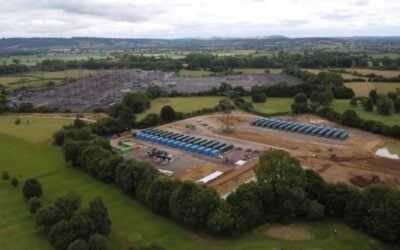
We heard from system integrator, developer and EPC delegates at the Energy Storage Summit EU in London last month about the implications of falling BESS prices.
As Energy-Storage.news reported last month, global prices for battery energy storage systems (BESS) have been on a downward trend since early 2023, having shot up in 2022.
Enjoy 12 months of exclusive analysis
- Regular insight and analysis of the industry’s biggest developments
- In-depth interviews with the industry’s leading figures
- Annual digital subscription to the PV Tech Power journal
- Discounts on Solar Media’s portfolio of events, in-person and virtual
Clean Energy Associates (CEA) took a deep dive into BESS pricing and the dynamics underlying the recent falls in the most recent edition of Solar Media’s quarterly journal PV Tech Power, an extract of which was published today (11 March).
The obvious: improves the business case
The obvious point to make is that falling BESS prices improve the business case for energy storage. One delegate from the Netherlands, where BESS has struggled to get off the ground, told us the falling BESS prices had definitely improved the business case there.
Another obvious: price isn’t everything
Perhaps another obvious point: price isn’t everything. Jeremy Powell, BESS director for engineering, procurement and construction (EPC) firm G2 Energy said: “If you buy cheap, you buy risk. You need to carry out proper due diligence to ensure they are complying with the regulations of the country and have adequate after-sales services and spare parts.”
But price has become more important
Price is, however, becoming more important as more players come into the space from an increasingly financially opportunistic point-of-view rather than a strategic one, as system integrator Sungrow’s Europe ESS director James Li explained in an interview published after the event.
This was echoed by EV supercar and (as of recently) BESS technology company Rimac Energy, whose head of business development told us that, although it was launching a product based on superior performance than others, it acknowledged the need to be “highly competitive” on pricing.
How price changes affect an order negotiation
The two-day event also gave the opportunity to sit down with both the BESS provider and developer customer, in this case Merus Power and eNordic/Ardian discussing their 40MWh Finland project, and Powin and Pulse Clean Energy discussing their 110MWh UK project, both announced in February (Powin/Pulse’s during the event itself).
Merus’ sales director Markus Ovaskainen said that the project order negotiations “…saw numerous iterations on the price and ended up somewhere else from where we started,” while eNordic’s M&A director Aleksi Lumijärvi added that “negotiations need to react to” the falling prices.
Similarly, Pulse Clean Energy CEO Trevor Wills said that everyone expects that the price of BESS will move up and down over time and stressed the importance of having long-term strategic partnerships to see through those cycles.
Prices affect some projects more than others
Powin president Anthony Powell echoed the point about long-term partnerships but also highlighted that the BESS prices have different implications for different kinds of projects.
“We have different types of customers. We have partners like Pulse where you’re looking at a two or three-year partnership where you want to give them the best price at every given point in time,” he said.
“And that includes proactively reaching out and saying, ‘Hey, we’re able to improve these numbers or this project or that project in delivery this quarter because we’ve been able to improve our supply chain’. I think doing that proactively creates this feeling that we’re not trying to make more money when lithium goes down, which is not a sales strategy that we follow.”
“The other type of project is one that just doesn’t get built until you reach a certain threshold of cost. The IRA and the period of lithium going down have seen specific kinds of projects which are going to be flipped soon after commercial operation, and those customers are waiting for the price to go down to a certain level before executing the deal. These are two different ways to deal with price volatility, and we obviously prefer the partnership approach.”
‘Land grab’ is not sustainable practice
In a separate interview with Energy-Storage.news, Powin’s senior VP Danny Lu further discussed Powin’s approach in a market of falling prices: “We’re aiming to be net-margin positive, which means we cannot take every deal. We are seeing certain suppliers losing money or making zero margin on projects just to take on market share, and we don’t think that’s sustainable practice. Companies have tried and failed doing that.”
Energy-Storage.news’ publisher Solar Media will host the 5th Energy Storage Summit USA, 19-20 March 2024 in Austin, Texas. Featuring a packed programme of panels, presentations and fireside chats from industry leaders focusing on accelerating the market for energy storage across the country. For more information, go to the website.






